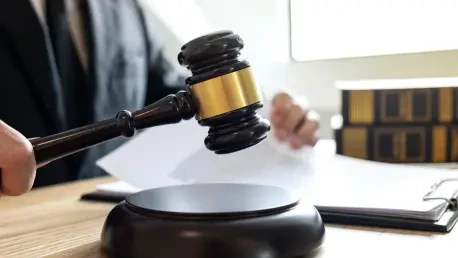Newark Mayor Ras Baraka’s activism has landed him in the middle of a legal storm. When political figures stand trial for acts of civil disobedience, public perceptions can drastically alter. These scenarios raise intriguing questions about the influence of political standing on judicial outcomes. His situation highlights an extraordinary interplay between politics and law, especially when a high-profile mayor faces legal challenges for his actions at a migrant detention facility.
The charges against Mayor Baraka stem from his visit to Delaney Hall, a privately owned detention center. He entered the facility intending to draw attention to the conditions experienced by those detained inside. His actions led to allegations of illegal entry and, consequently, legal proceedings under both federal and state trespassing laws. This development sparked significant interest and debate within legal circles, challenging the boundaries of legal accountability for public officials engaging in political activism.
The controversy extends beyond just one person’s conduct; it represents a microcosm of current debates over immigration policy and the role of public figures in advocating for reform. Mayor Baraka’s case captures the tension between law enforcement and political activism, a theme resonating within the judiciary and society. As the country grapples with questions of immigration, the implications for how the law is applied and whom it impacts become central discussions, especially when policymakers initiate actions outside conventional political spaces.
Legal Framework of Trespassing
At the heart of this case are the legal definitions governing trespassing. Trespassing laws, particularly those concerning sensitive areas like detention facilities, are strict. Both federal and state statutes were invoked, outlining clear boundaries on unauthorized entry. This area of law is crucial in maintaining security and order within such locations. In recent years, similar cases where public figures have transgressed these statutes have highlighted consistent enforcement, revealing how legal systems address such transgressions uniformly.
Statistics on trespassing-related offenses reveal its application’s rarity in political contexts, yet when applied, the outcomes can set notable precedents. Legal systems must balance maintaining security protocols within such facilities while assessing the motives and public stature of individuals involved. In Mayor Baraka’s case, his public and political influence could unwittingly complicate judicial proceedings, testing whether tenets of justice apply equally to all, irrespective of status.
Perspectives from Legal Experts
The legal community’s response features varying perspectives on the finely balanced legal and political dynamics at play. Many lawyers agree that the straightforward nature of the applicable statutes poses significant challenges to Mayor Baraka’s defense. White-collar criminal lawyers offer a kaleidoscope of insights into the complexities faced when defending actions predicated on civil disobedience.
For instance, a prominent case from recent years involved a state official accused of similar offenses during a protest for educational reforms. The official faced similar legal hurdles, where intent and political motivations were weighed against clear violations of law. Such examples illuminate the trials awaiting Mayor Baraka and offer a possible roadmap for navigating this blend of legal and advocacy efforts.
Legal and Political Strategies
Navigating the dual terrains of legal accountability and political activism requires a well-devised strategy. Legal experts outline several defense strategies, focusing on the intention behind actions and potential prosecutorial discretion. Adopting a strategy involving public outreach alongside legal proceedings may offer a way to influence perceptions, emphasizing the societal motivations behind broader political implications.
Balancing legal obligations with activism involves understanding the nuanced lines between civil disobedience and breaking the law. Public officials like Mayor Baraka must weigh their advocacy goals against the legal risks, often requiring professional legal guidance to determine the best course of action. This balance is pivotal in ensuring that official duties do not inadvertently lead to legal repercussions while allowing room for necessary political engagement.
Reflecting on Judicial and Political Dynamics
The culmination of Mayor Baraka’s case illustrates a critical intersection of political ideals and legal realities. His advocacy, though rooted in public interest, does not shield him from legal scrutiny—underscoring a fundamental principle of justice. As public figures continue to challenge prevailing systems, their legal defense becomes not just a personal battle but a broader dialogue about accountability and political freedom.
Looking forward, legal clarity on actions that tread the line between civil disobedience and unlawful conduct becomes essential. Public officials may need to consider alternative avenues for advocacy, where the risks of legal entanglements are minimized without diluting their political efficacy. As judicial and political dynamics evolve, analyzing the impact and consequences remains a key task for policymakers and legal experts alike.









